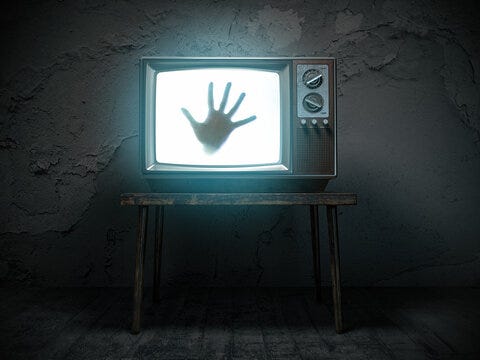Some Good Genre Shows
Wanna watch some TV?
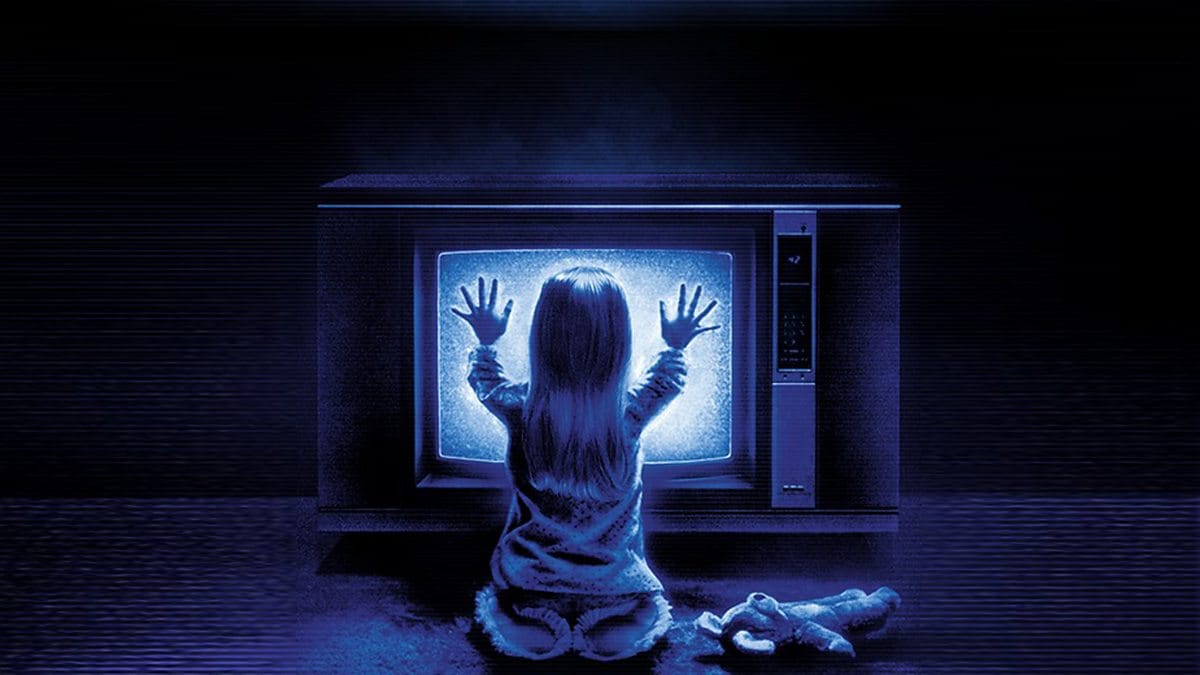
You may have noticed that I watch the occasional bit of TV.
It’s true. It’s because I’m a big fan of stories. And it’s not just on TV either, books, movies, comics, the occasional radio play even, whatever it is, I’m all in. As far as the particular type of story goes, I’m generally not all that discerning either, a good story is a good story. Of course, that having been said, it is fair to say that, should the story in question somehow involve one of, or some combination of the following, like… one last big heist, immortal warriors, distant planets, killer (or nice) robots, time travelers, alien invasions, the multiverse, secret conspiracies, dystopian futures, androids or cyborgs, superheroes, magic, kung fu, vampires, private detectives, or magic kung-fu vampire private detectives, or zombie apocalypses, monster hunters, shape-shifting bounty hunters, serial killers, ninjas, mutants, daredevil smugglers, to name a few, well…
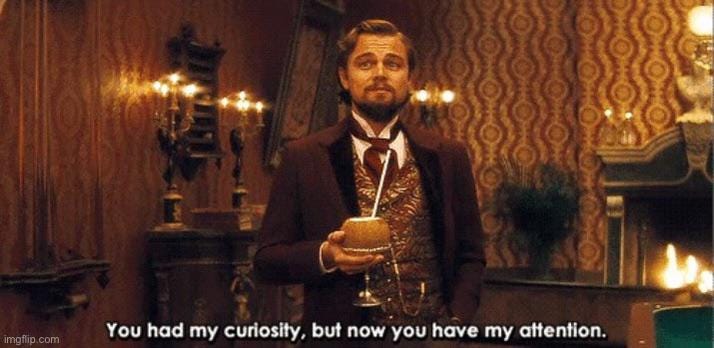
So yeah, despite being open to watching just about anything, I do spend a lot of my time mostly with genre stuff.
In regular usage, the word “genre” refers to a category of artistic composition, in either music or literature, that is usually characterized by similarities in form, style, or subject matter. However, when people like me talk about “genre” in reference to tv shows, movies, books, or whatever, we usually mean sci-fi, fantasy, horror, westerns, noir, things like that. Basically, genre stories are the ones that pretty much never get nominated for an Oscar. Unless the Academy is desperate for ratings.
Because, y’know… it’s Nerd stuff.
It used to be that Nerd stuff wasn’t totally front and center, but times have changed somewhat, and it started with Star Wars.
While it definitely wasn’t the first example of genre stuff by any means, it was Star Wars that first brought nerd stuff into the light of the mainstream. With Star Wars, for the first time, it wasn’t presented as a parody, or strictly kids’ fare, and it wasn’t yet another garbage “B” movie that was mostly just an excuse to show tits. Star Wars was the first openly nerdy bit of genre storytelling that took its silliness at least somewhat seriously and was meant for everyone to enjoy. But even then, despite being one of the rare examples that was acceptable to openly like as an adult, it was still considered to be a fringe thing. If you were a big fan, you still kept the true depths of your love to yourself, saving it for special occasions, and only with certain people.
You never wore your Spock ears to school, is what I’m saying.
Still, that’s where it began, and over the next 25 years, the Nerds began the slow trek from the fringes to the center, fully and unashamedly entering the mainstream, testing the waters with things like Buffy the Vampire Slayer and Heroes, making big strides with shows like Lost and Battlestar Galactica, and by the time Iron Man was released, it was a done deal, man, Pop Culture fully belonged to the nerds…
Now, instead of just one lone show a year, laboring gamely along on a Wednesday night beneath the looming shadow of America’s Funniest Home Videos, as we pray for it to make just one full season before being cancelled (RIP Firefly), instead of just on one single movie franchise that we basically had to settle for, despite the fact that it was mostly bad, not to mention a terrible adaptation, because it was all we had, (I’m looking at you, Fox’s X-franchise), now…?
Now there’s a seemingly endless font of options. Now, we are inundated with the kinds of topics and ideas that were once relegated to the shadowy cobwebbed stacks in the back of musty-smelling indie bookstores and dimly-lit comic shops shoved into the narrow spaces in the ugly part of the dirt mall. Now, there’s a veritable cornucopia of choices at your fingertips at any moment. There’s so much to choose from now, in fact, sometimes some really good stuff can get missed in the maelstrom.
So, I thought I’d make some recommendations, if you’re interested.
If so, here are some good genre shows I like. These are shows that were maybe considered lesser, or ones that seem to be forgotten now, or ones that were maybe over-looked at the time, or perhaps ones that, at least in my opinion, just aren’t talked about enough. And maybe that’s all untrue, maybe every one of these shows have a huge fanbase, and all kinds of awards, and are discussed regularly, but if that’s the case, I’m not aware of it, or I just don’t care. Either way, despite the ups and downs that inevitably come with shows like this, I’m listing them because I like them.
Also, I just like making lists.
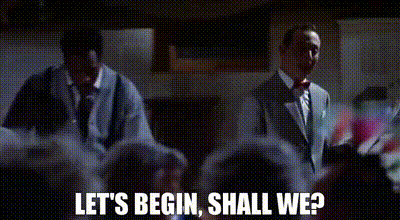
From
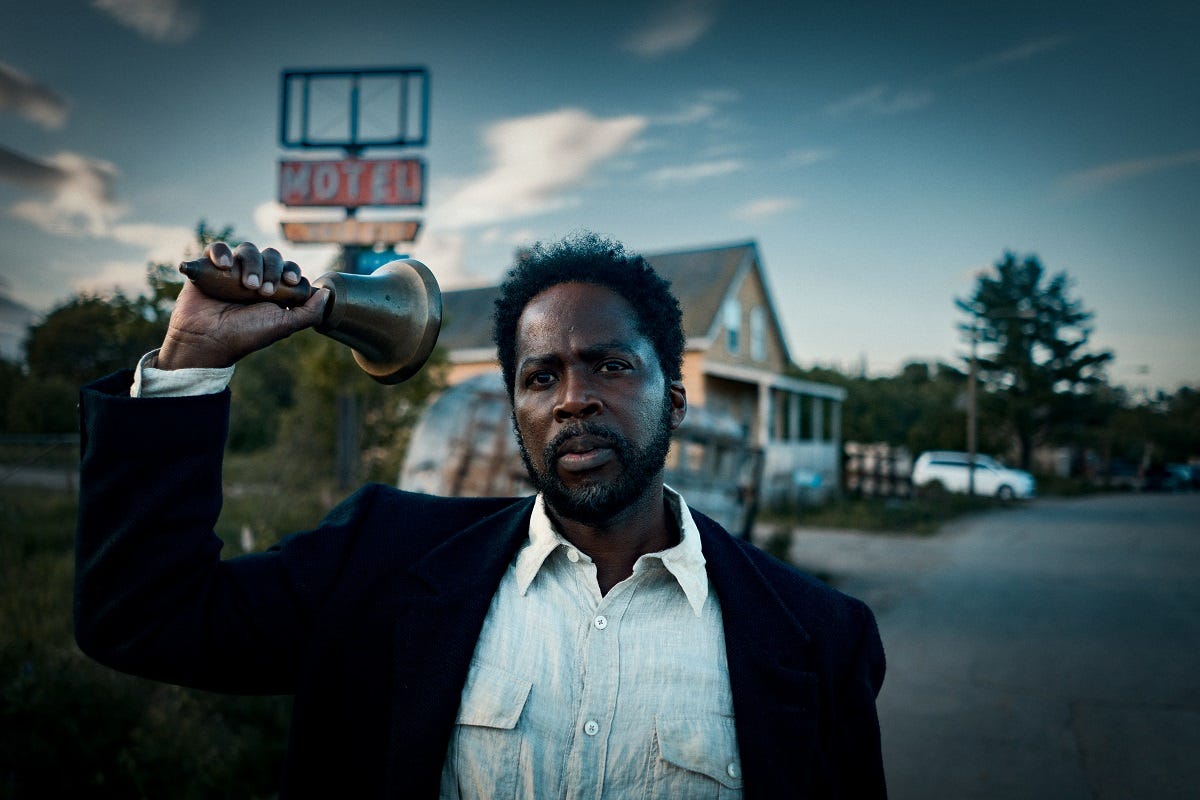
Be careful when you’re traveling the highways of America. If you drive too far and too long, if you take the wrong exit, you might end up trapped in a nightmarish little town with no way out. In this town, the unwilling residents spend their days trying to find a way home, and their nights huddled within their homes as terrifying creatures emerge from the surrounding woods, hungry for blood.
From is a “Mystery Box” show, which is a genre of fiction that features a large and complex story based on mysterious happenings, with multiple interlocking sub-plots and a large cast of characters that eventually (hopefully) reveals the secrets that binds everything together. Think… Lost, or Stranger Things, or Yellowjackets, among others. These are shows that either work brilliantly, or they go down in flames, so it’s always a risk starting one of them. They could be cancelled before the story is finished, or they could make it all the way to the end of the story, only for the ending to be too rushed, or to be revealed as really dumb.
With only two seasons, From has been really good so far. Fingers crossed.
A big problem with a lot of streaming shows (one of many) is that a season is now usually six, eight, or maybe ten episodes, and a good mystery box show really needs the narrative space afforded to it that the broadcast TV model of 22 episodes a season provides. Unfortunately, they don’t get that anymore, so as a result two seasons of a streaming show end up seeming more like one good season of TV.
This is where From is at right now. Two seasons are done, and together, they make one really good 20 episode run of a fun little horror show. It’s inventive and creative, with a really interesting, and best of all, internally consistent mystery, at least so far. It also has a lot of really strange and scary elements, all of which seems to be painting a bigger picture, the kind that you will be able to extrapolate several potential answers from, which is half the fun of watching. I’m excited to see more. If the first episode doesn’t hook you, then it might not be for you, but I think it’s worth checking out.
Also, the third season is coming soon.
Travelers
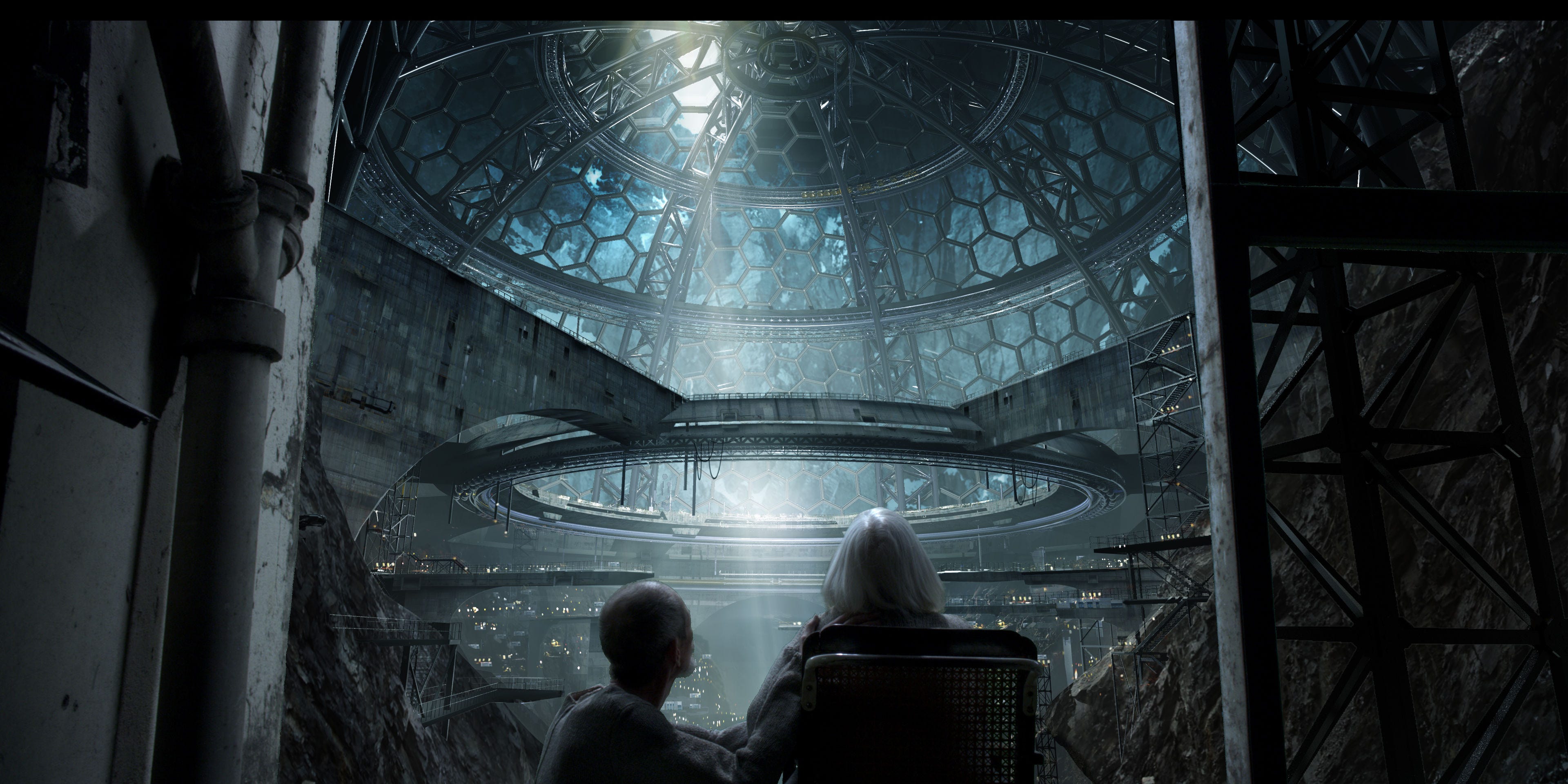
There are hidden cells operating all across world. Each cell has five members, a Historian, a Doctor, two Soldiers, and the Leader. From a dark and terrible future, using old social media records, they are able to project their conscious back in time, and into the body of a person at the moment they are about to die in the 21st century. Then, they assume the lives of their supposed-to-be-dead host, all while acting under the orders of their mysterious "Director,” completing missions that are meant to change the events of past, and thus… save their future.
I love a good Time Travel show, and Travelers is that in spades. It’s surprisingly clever and a lot of fun, especially for a small budget Canadian sci-fi show. It stumbles a little bit in the first season, as the problems plaguing the people the time travelers have taken over ultimately aren’t as interesting as the mission itself, but it picks up.
I really liked how the type of person the characters are in the future don’t really fit with the bodies they end up with in the past. I don’t know this for sure, but I think they got the whole non-congruous personalities for their body types idea from the sitcom Third Rock From The Sun, which is hilarious if true, especially as it’s kind of a cool part of the show. Plus, the way the Historian’s role works? It’s great. The whole set up of their organization, in fact, the way this secret effort in the distant past works, is really fun.
Best of all, each mission they complete really does affect their future, which causes disruptions in their present day mission, as their orders start to change as the future starts to change, with the unexpected wrinkle being that new enemies with competing agendas begin to emerge from these new futures too, which is a really fun aspect.
Travelers has three seasons, and it’s a bummer that the show didn’t get a real ending, but that happens sometimes. It’s still worth watching, if you ask me. If you’re unsure, I would recommend checking out season 2, episode 7: “17 Minutes.” It’s a mostly stand-alone episode, and it’s a really clever twist on the whole “stuck in a time loop” trope.
Colony
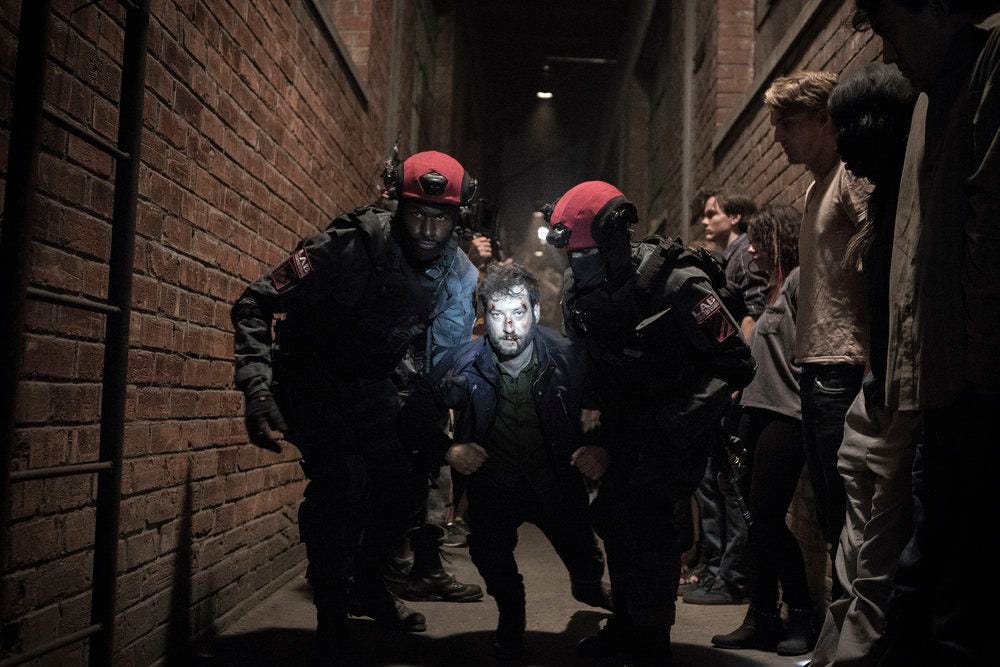
After an alien invasion takes over the world, Los Angeles is turned into a series of occupied, walled-off camps. While our alien conquerors sit in orbit overhead, more concerned with their own mysterious agenda, some of humanity collaborates with the invading forces, while others begin to form a resistance.
Colony starts as a modern day sci-fi riff on Nazi Occupied Paris, but it very cleverly and deliberately grows in scope as the show progresses. Tracking the beginnings of the human resistance under the boot of alien invaders, all while slowly revealing not just the aliens’ agenda, as well as the state of the rest of the world beyond the wall, but just how much the powers that be here on Earth actually knew about the aliens and the coming invasion. I really like the way the show did this, the way it keeps shifting the status quo. That was really well done.
What’s really interesting is how the story treats the aliens as mysterious and unknown, and other than their tech, they are generally unseen. For the most part, the show focuses on the conflict between the rebels and the Vichy traitors. On one hand, it’s obviously a money saving effort, but it adds a scope to what’s happening on Earth that is really nice. All in all, this is a good time sci-fi action show with some really well-done world-building.
Also, I love that the collaborators are called “Red Hats”
Colony is another in a long line of genre shows that didn’t get to finish its story. It got three seasons, but it was cancelled before it was done. Still, it’s worth checking out. It’s really much better than I expected, especially given the fact that the show’s two stars are otherwise kinda terrible.
Continuum
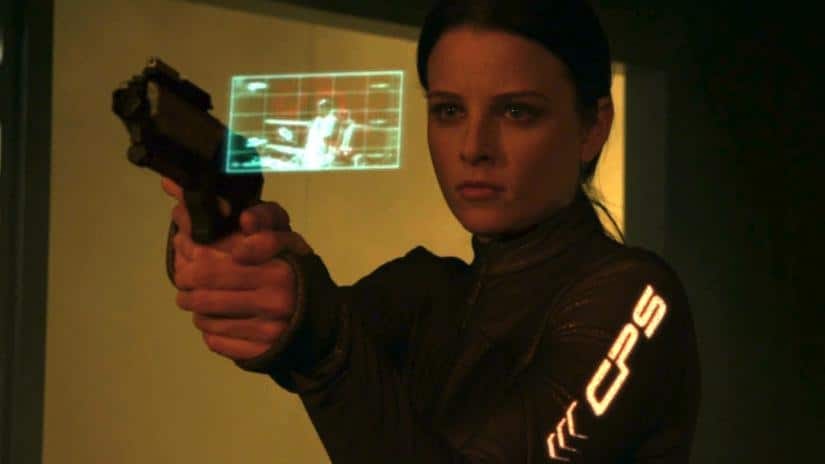
In the year 2077, Keira Cameron is an officer with the City Protective Services when eight terrorists organize a jailbreak, flinging themselves back in time to modern day North America, and accidentally dragging her with them in the process. As a result, Keira finds herself trapped in the past, with few allies, trying to capture the escaped criminals before they can alter the future. But as the realities of her own time start to become clear to her, she begins to wonder… is she even on the right side?
I love that whole aspect of this show, the way Keira slowly realizes that while the criminals she’s chasing aren’t all totally good guys, neither is she. That’s so good. But still, she has a husband and a child in that shitty future of hers, and she doesn’t want to lose them, which she might, if she stays in the past, or if the future changes. That’s a great concept, and a great hook. Plus, I love that she has her Future Cop gear with her when she lands in the past, and while this gear is nothing special in her time, nothing but basic issue, in our time, it’s practically magic.
Of all the shows on this list, Continuum has the widest gaps between its up and down episodes. Some of its episodes are down right bad. This happens with shows like this. Over 42 episodes, writing room quality levels can shift as Production agendas shift, and also, honestly, some sci-fi tv writers are just not very good, but…
Continuum had four full seasons, and it gets better as it goes. Best of all, it finishes its story, AND… it sticks the landing when it does. I’ll admit that this one may be outside of a lot of people’s tolerance for these kinds of show, it is a little hokey and CW-like at times, but still, it’s surprisingly clever, and it has some cool moments, especially for a low-to-medium budget sci-fi show that starts out pretending its set in either Chicago or Seattle, despite clearly being filmed in Vancouver, and at a certain point, just stops bothering to pretend at all.
Basically, as a late era Buffy/Angel/Supernatural-style CW show, that was never on the CW, Continuum is totally worth binging.
Resident Alien
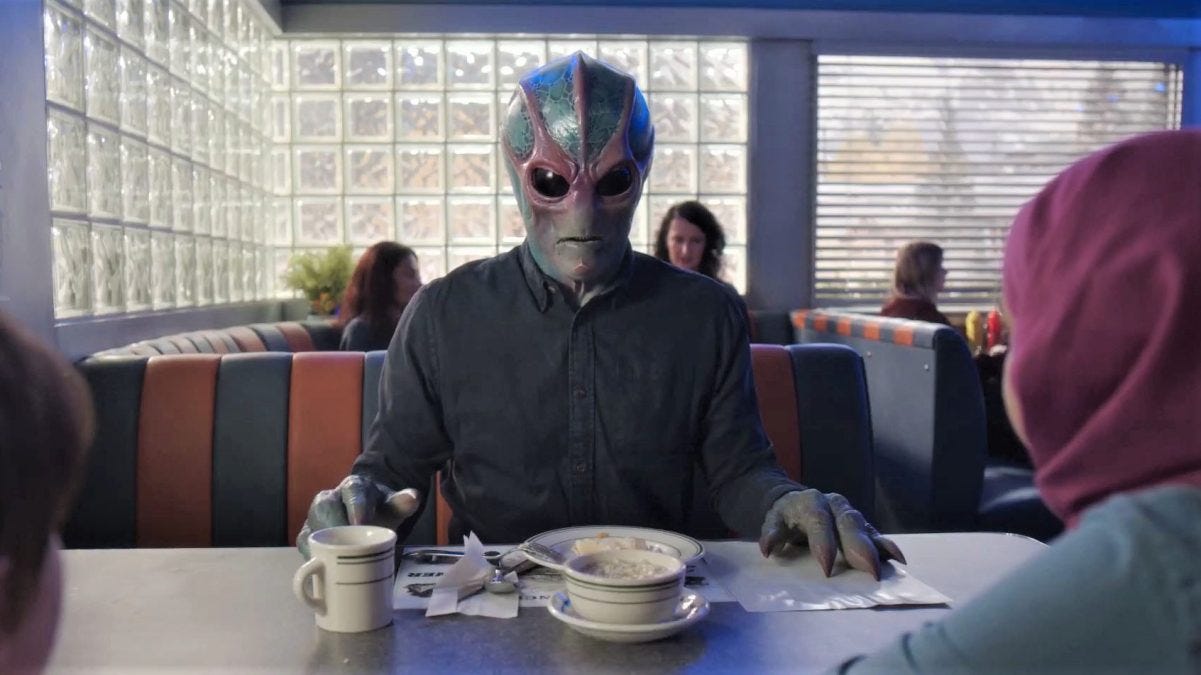
An alien crash-lands on Earth and must hide out in a remote Colorado mountain town until he can fix his ship and complete his mission to kill all the humans. Assuming the identity of the town doctor, Harry Vanderspeigle, his nefarious mission is threatened when he's roped into solving a local murder, and realizes that one of the townspeople, a 9-year-old boy, can actually see his true alien form. Even worse, living among all the humans eventually causes Harry to begin to wrestle with the moral dilemma of his secret mission on Earth.
Resident Alien is really funny. I was surprised by how funny it was.
That’s the best part. It’s hilarious. Alan Tudyk as Dr. Harry Vanderspeigle is a continual laugh riot as an arrogant alien who thinks humanity is nothing but a barely sentient animal, and knows nothing about Earth, save from what he has learned from watching episodes of Law & Order. The show has three seasons, and even though it was cancelled, despite having room for more story, it ended at a good point.
Originally I had avoided this show for a long time, despite continually hearing good things about it, because sci-fi comedy is usually very predicatable and not funny at all. I assumed it was going to be a kind of modern day Mork & Mindy meets the Big Bang Theory, and to be fair… it kind of is that, but it’s also more than that. It’s very sarcastic, it’s very inclusive, it isn’t afraid to be gory, and it’s surprisingly “sci-fi,” as it often uses not just some clever ideas in some clever ways, along with a lot of classic sci-if tropes, but it also pulls a ton of references from some pretty deep-cut classic alien abduction conspiracy theories, which is super funny.
Plus, Linda Hamilton is in it.
It’s totally fun. I really enjoyed it.
See
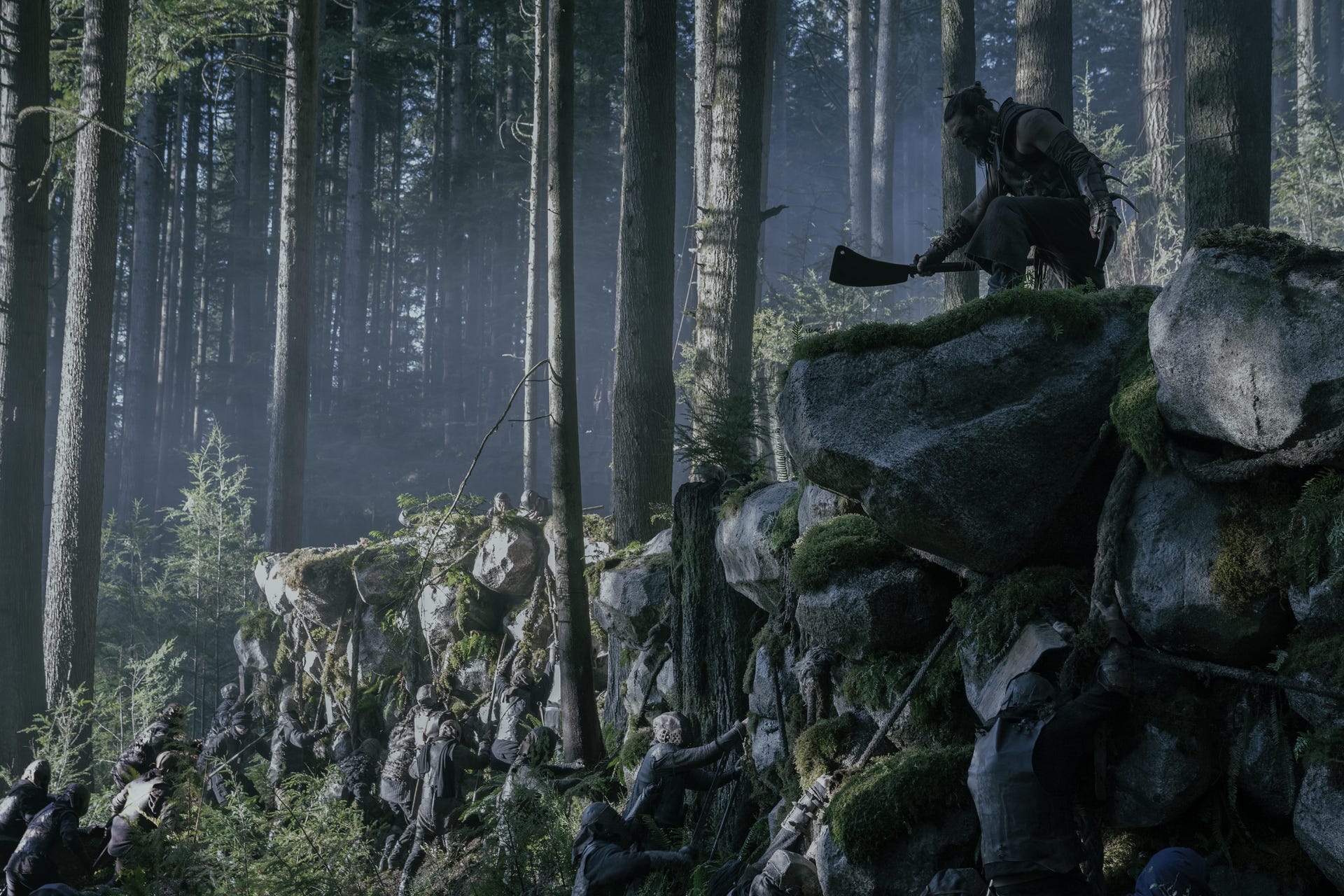
Five hundred years after a plague has wiped out most of humanity, and left the few survivors blind, the human race has adapted to living sightless amongst the ruins of the old world. But the world is now a brutal place of warlords and superstitions, where humanity huddles in fear at the ancient legends of sight, and how it was instrumental in bringing about the fall of the old world. It is also a time of great change, one that begins when a warrior’s twin children are born with the ability to see…
This one is a hard sell. I know it is. Think Mad Max meets Game of Thrones, but pretty much everyone is blind. It sounds like a silly hook, with a set up that could be very cringe, I know, and sure, it is a little.
But it’s also kind of awesome.
And it’s Jason Mamoa’s best role, as this bloody fight scene where he saves his son from a gang of slavers attests. Taking place in the ruins of Pennsylvania 500 years in the future, and featuring characters with some great names like Baba Voss, Tamacti Jun, Bow Lion, Jerlamarel, and Maghre Kane, See is the story of a world on the brink of a new era, as warriors and thrones alike go to war against the dawn of an inevitable new future… one where the ability to see has returned.
Additionally, the show’s production had people who are blind, or with visual impairments, or low vision, working both in front of and behind the camera, so there’s a lot of interesting little details and ways with which the characters interact with each other, how they live in the world, and the way they fight and move. All of that was really impressive.
The story does get sillier as it goes on, but it’s a good time throughout, and it was able to tell its own story and have an ending, so that’s good. Plus, in season 2, a blind Jason Mamoa, doing his best Zatoichi, fights a blind Dave Bautista.
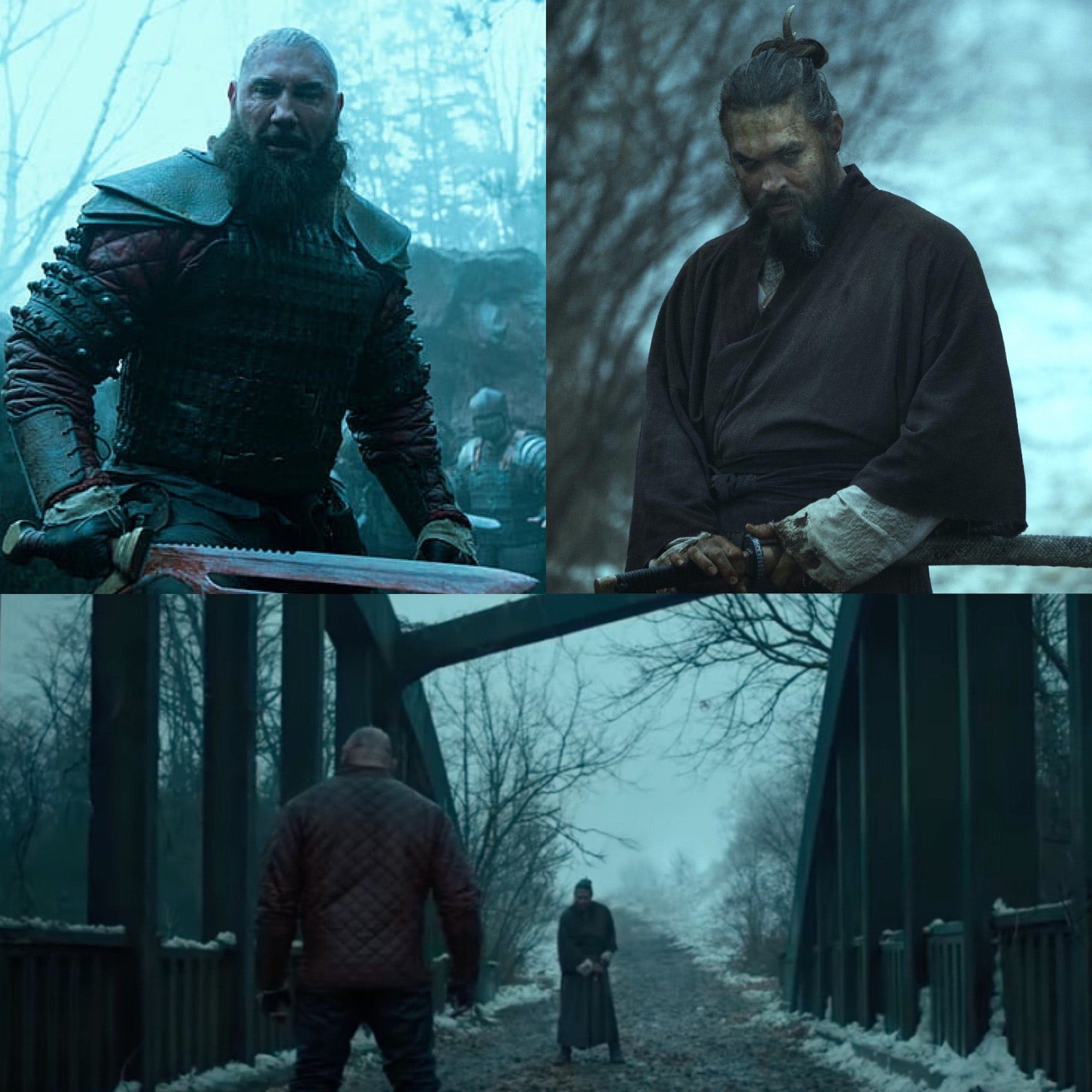
I don’t think I need to remind you all that this is what’s known as pure entertainment.
Foundation
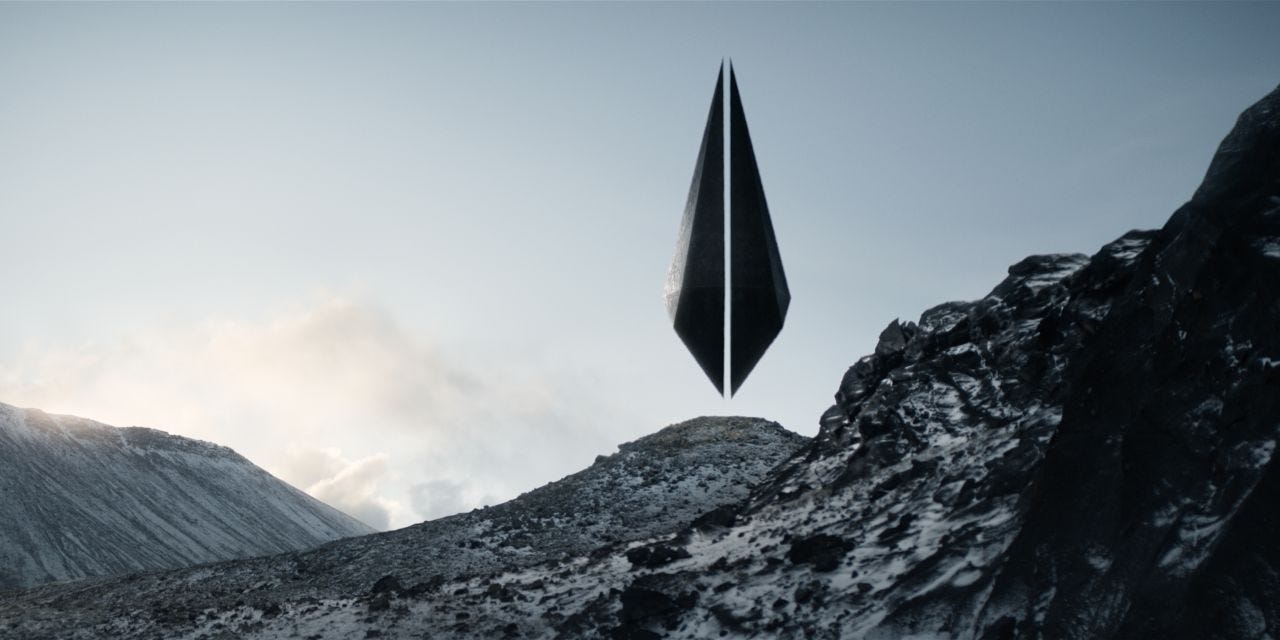
In the waning days of a Galactic Empire that stretches over thousands of years, mathematician Hari Seldon, using the statistical laws of mass action, foresees the Empire’s imminent fall, and the coming of a Dark Age that will last 30,000 years. Too late to stop the fall, Hari Seldon devises a plan to salvage pieces of the Empire, in order to leave a light burning in the darkness, to build a Foundation that will help to hasten the start of a new Age of Reason.
This is the story of that struggle.
I’ve never read the source material of this show, but from my understanding, this adaptation is basically nothing like the award-winning novels by Isaac Asimov, or at least, if the books tell the story of the end of a Galactic Empire from a very high vantage point, then the show focuses on the minutiae of various characters at pivotal moments of history across thousands of years.
Whatever the case, it’s a lot of fun watching the warden Salvor Hardin, and the scientist-adventurer Gaal Dornick leapfrog through time, rediscovering a strange universe each time as it devolves further and further into chaos, especially as they are now on a headlong collision course with The Mule, an enemy hundreds of years into their future who has been waiting for them both for a long time.
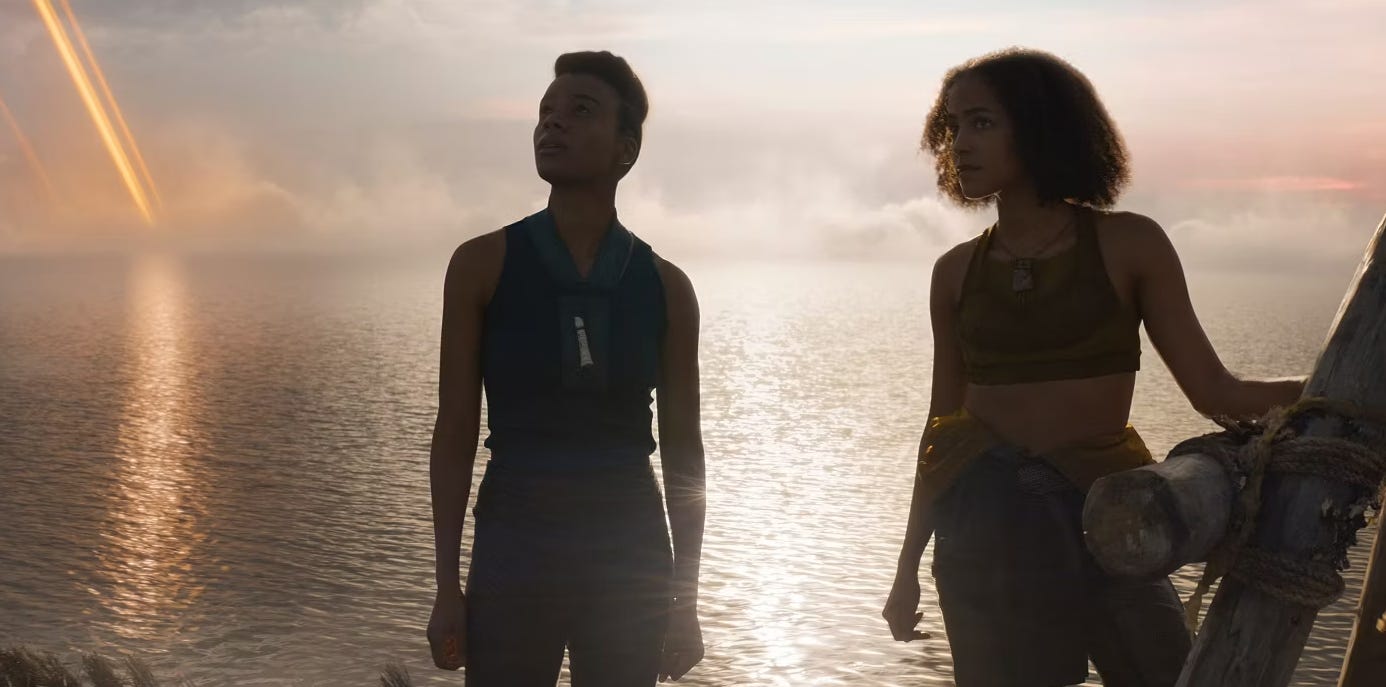
Another great part of this show is Lee Pace as Brother Day, one of the series of genetic clones of a man named Cleon I, who have reigned throughout the Empire’s 12,000 year history. There are always three clones alive at one time. Brother Dawn, the youngest, who is learning how to rule like a son from a father, Brother Day, the middle one, who sits upon the high seat, and Brother Dusk, the oldest clone, retired from his duties as Emperor, and serving in an advisory role. Lee Pace plays multiple versions of Brother Day, as over the years, Dawn becomes Day and Day becomes Dusk, and it’s a lot of fun watching him struggle to hold the pieces of his crumbling empire together, especially as mistakes that were made by his older versions echo forward through time to bite him in the ass.
Complex, interesting, and surprisingly fun, with a wide range of cool ideas, there’s two seasons so far, and season three is on the way. I really enjoyed this show, much more than I expected to. It’s totally worth checking out.
Fringe
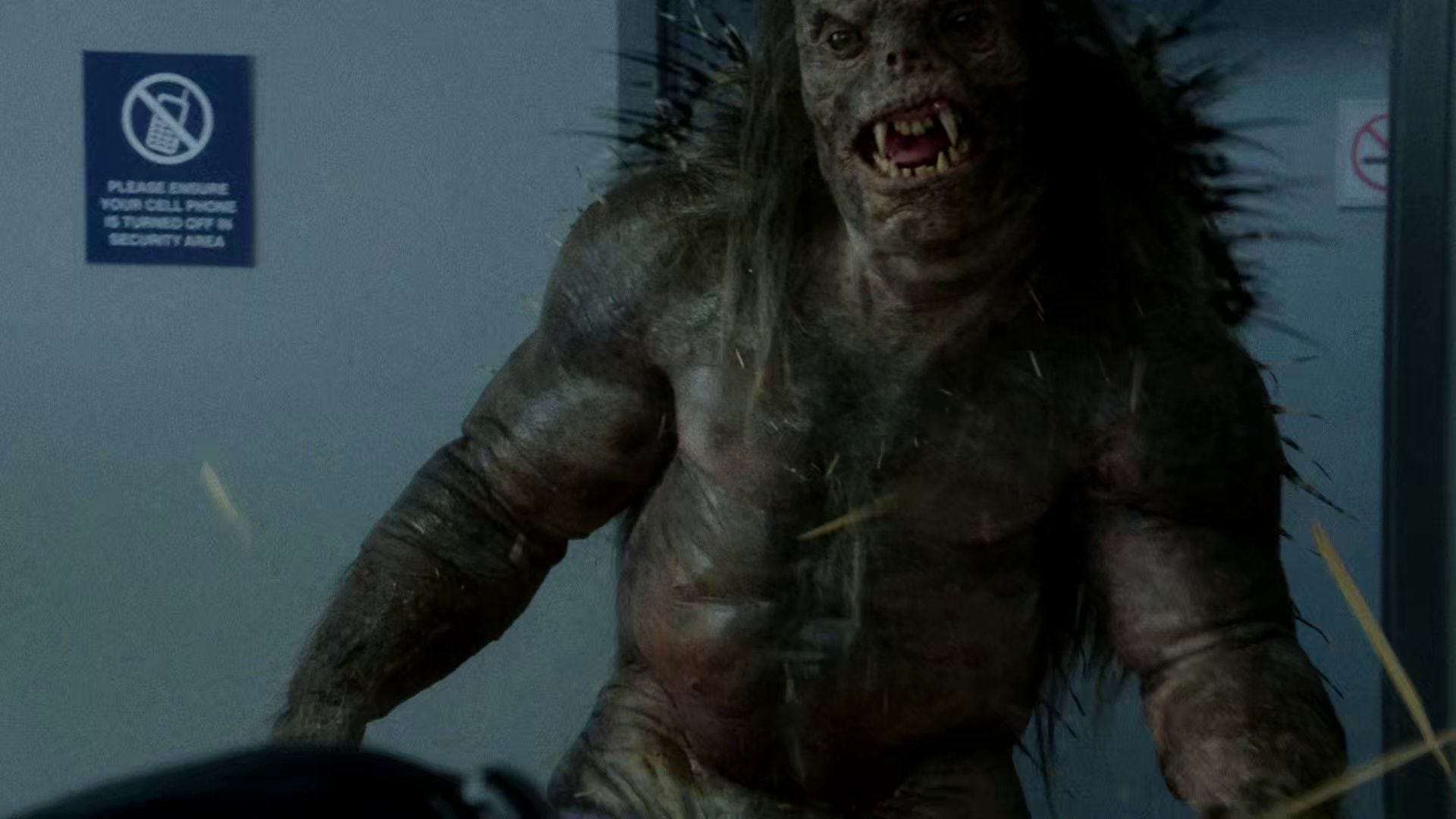
FBI Special Agent Olivia Dunham is assigned to the bureau's Fringe Division, investigating unusual crimes and occurrences, from transhumanist experiments gone wrong, to the prospect of a destructive technological singularity, to a possible parallel universe. Assisting in her investigations are the once-institutionalized mad scientist Dr. Walter Bishop, his jack-of-all-trades son, Peter, and FBI Agent Astrid Farnsworth. Together, they begin to unravel the biggest secret in the world.
One of the older shows on the list, Fringe is a show that was created by J. J. Abrams, Alex Kurtzman, and Roberto Orci, and for the most part, they’re all reliably terrible, but even a broken clock is right twice a day, and this show is one of those times.
So, for reasons I can only assume are due to them being stupid assholes, Abrams, Kurtzman, and Orci all denied that this show takes its inspiration from the tv show X-Files. Despite this asinine claim, Fringe is clearly an X-Files type show, one where a division of the FBI investigates a world filled with the dangerous left-overs of Cold War Black Science. Like X-Files, Fringe is packed with cool ideas and surprises, but where Fringe handily beats the X-Files is it actually answers the questions it poses.
Also Fringe had a real ending after five seasons.
Much like the show Orphan Black, one of my favorite aspects of this show is how there are multiple versions of some characters, and on occasion, those characters will pretend to be one another, and I’m always really impressed when you can clearly see through their mannerisms that an actor is playing one character, who is pretending to be another character. That’s good stuff. Also, Anna Torv does a hell of a Leonard Nimoy impersonation.
Another thing I really liked about Fringe is how the end of each season changed the status quo of the next season. There are no resets to zero, it was all forward moment, which is a rare thing to find in long running procedural shows.
Raised by Wolves
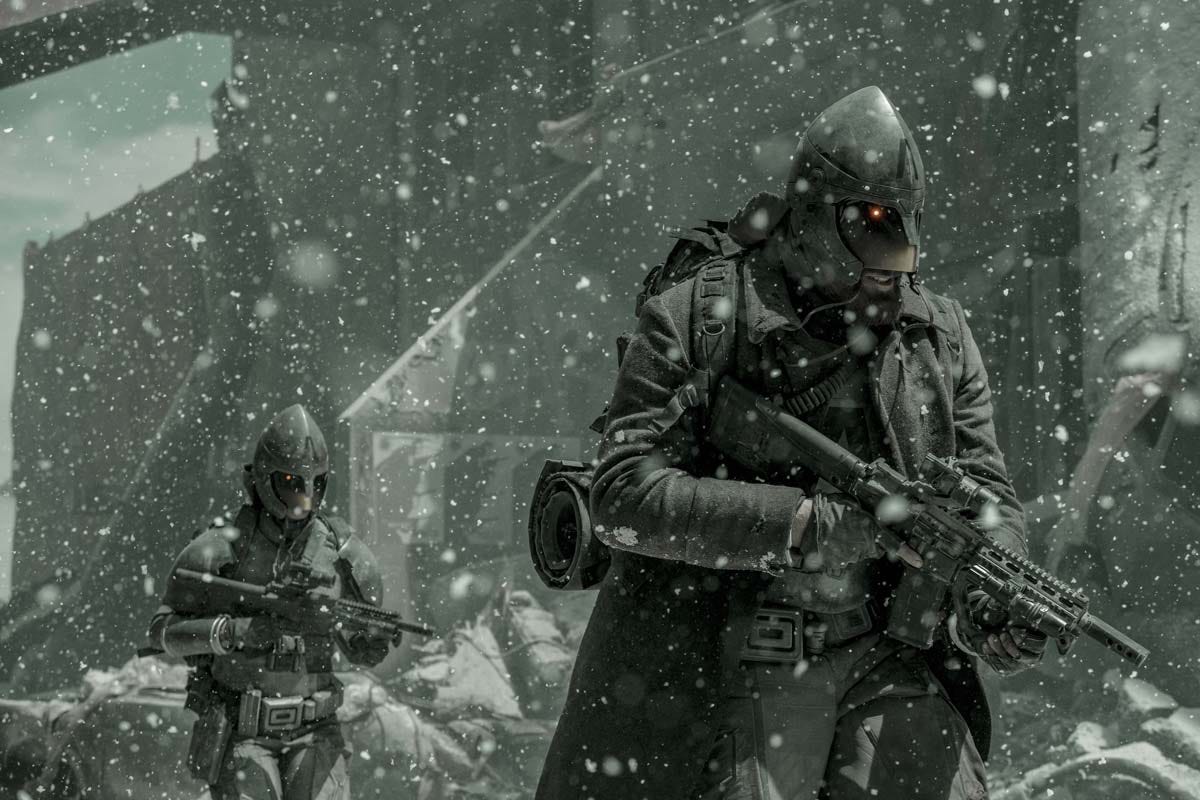
Two androids, Father and Mother, are tasked with raising some of the last human children on a distant planet, after Earth was destroyed in a war between the Atheists and the sun worshipping Mithraists. But soon enough, the war follows the androids, as a pair of colony ships, one full of Atheists and one full of Mithraists, finds their way to this new world.
With only two seasons, I loved this weird, interesting, cool, and beautiful-looking little sci-if show. It’s mostly about three different groups of humans, and a pair of androids, all trying to survive on a very strange and very dangerous planet, all while being their own worst enemy, but also the planet’s native lifeforms are pretty bad too.
It’s… super gory at times.
So, the main reason that Christianity dominates the world can be traced to Constantine the Great. In October 312, the eve before a big battle, he basically has a seizure. During the seizure, he “had a vision” of a flaming cross in the sky. When he recovered, he ordered his legions to paint the cross on their shields, and the next day, he triumphed over his rival Maxentius at the battle of Milvian Bridge, and believing this was due to holy intervention, he becomes the first Roman emperor to declare his support for Christianity.
Raised by Wolves is set in a world where Constantine must’ve lost, so instead, Mithraism rose to become the dominant religion. Mithraism was a Roman mystery religion that involved levels of initiation, a few secret handshakes, and underground temples devoted to Mithras, god of covenants, contracts, truth, and justice. It was apparently very popular with Roman Legionaries. The show never directly addresses or explains this, but I really love how it’s just a part of their world. I’m a sucker for alternate histories.
Additionally, the designs of the whole show, from the uniforms of the Atheists and Mithraists, the kinds of weapons they carry, to their tech, and the environment of the planet, its very cool and strange and different, and that’s without even mentioning the Necromancer android…
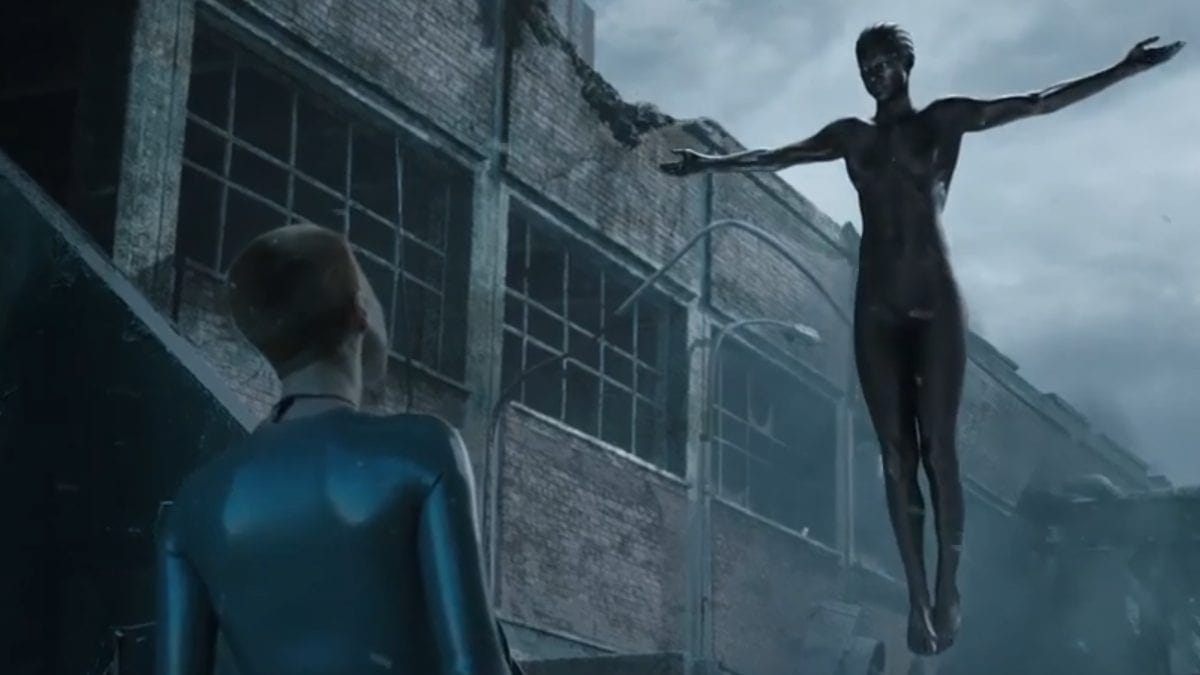
This whole show has a look and feel to it that feels very new. I really wish there had been more than just two seasons.
The Magicians
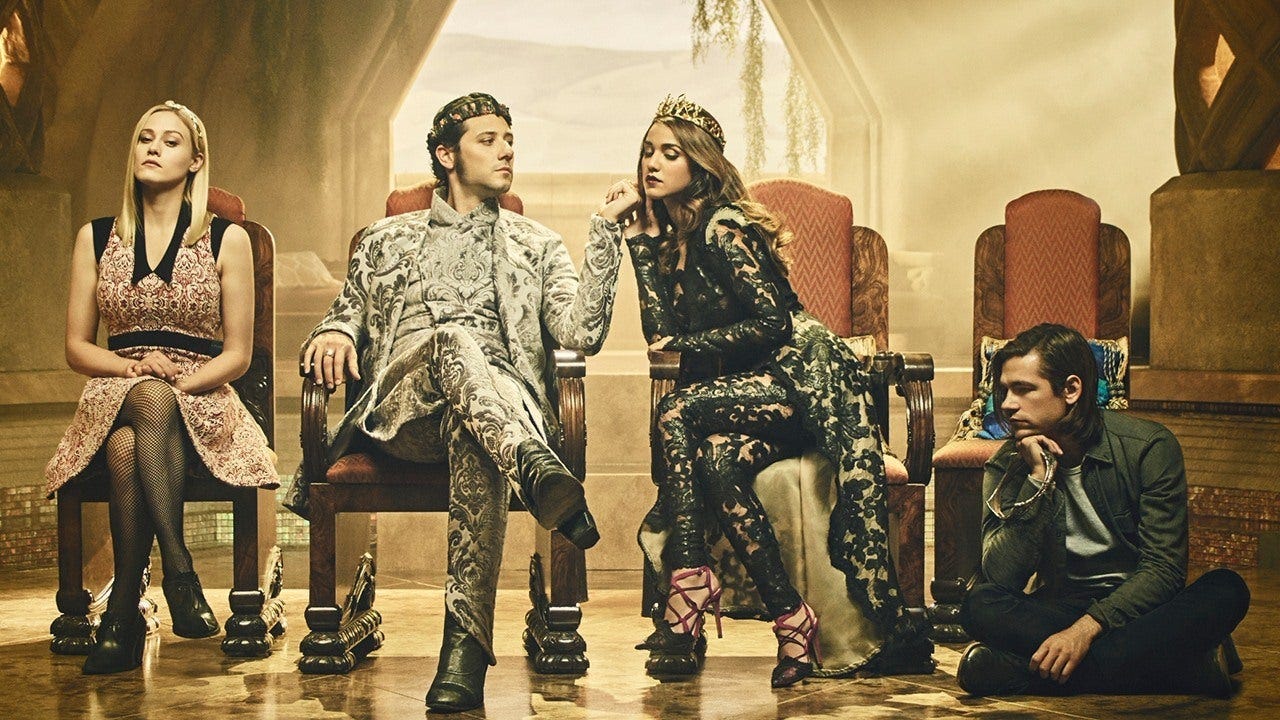
Magic is real, but hidden in plain sight, existing right alongside our own more mundance world. Quentin Coldwater enrolls at Brakebills University for Magical Pedagogy to be trained as a magician, where he discovers that the magical world from his favorite childhood book series is real, and it poses a very real danger to humanity. Meanwhile, the life of his childhood friend Julia is derailed when she is denied entry to Brakebills, and ends up on a path searching for magic outside of the school.
Based on the book series by Lev Grossman, The Magicians basically explains why there were no American Schools of Magic invited to compete in the Triwizard Cup in Harry Potter and the Goblet of Fire. Full of drunks, junkies, fuck-ups, assholes, and no end of spoiled brats, Brakebills is a very exclusive boarding school that claims to only takes the best and the brightest, but it also takes anyone with a well-known enough family name. It is a venerated institution that perpetuates a stodgy system, and mostly seems to churn out an endless stream of bored and privileged layabouts… all of whom know real magic.
Following the adventures of a small group of classmates as they graduate from Brakebills, and move out into the world, finding their way to the thrones in a Narnia-like world, and stumbling into a larger and much more dangerous magical world than they expected, the show admittedly drags a little in the first season, and Quentin is definitely the worst character, despite being the main one. But by the second season, the show realizes that the best characters are clearly Eliot, Margo, Kady, and Julia, and mostly keeps the focus on them after that.
This is my favorite scene with Eliot and Margot, where Eliot needs to let Margot know that the evil Fairy Queen is spying on them through Margot’s missing eye, but since they’re being watched… they must speak in code.
Sarcastic, catty, violent, sometimes sexy, and occasionally gross, all while set in a world of magic that is much more interesting and relatable than Harry Potter’s, with its jibber-jabber Flibberty-Geegaws, and more racist stereotypes than even Star Wars, all of which was written by an evil Terf, the Magicians, by comparison, is a good and surpisingly much less problematic time.
Plus, the finger dances they do as part of casting a spell is cool.
The Umbrella Academy
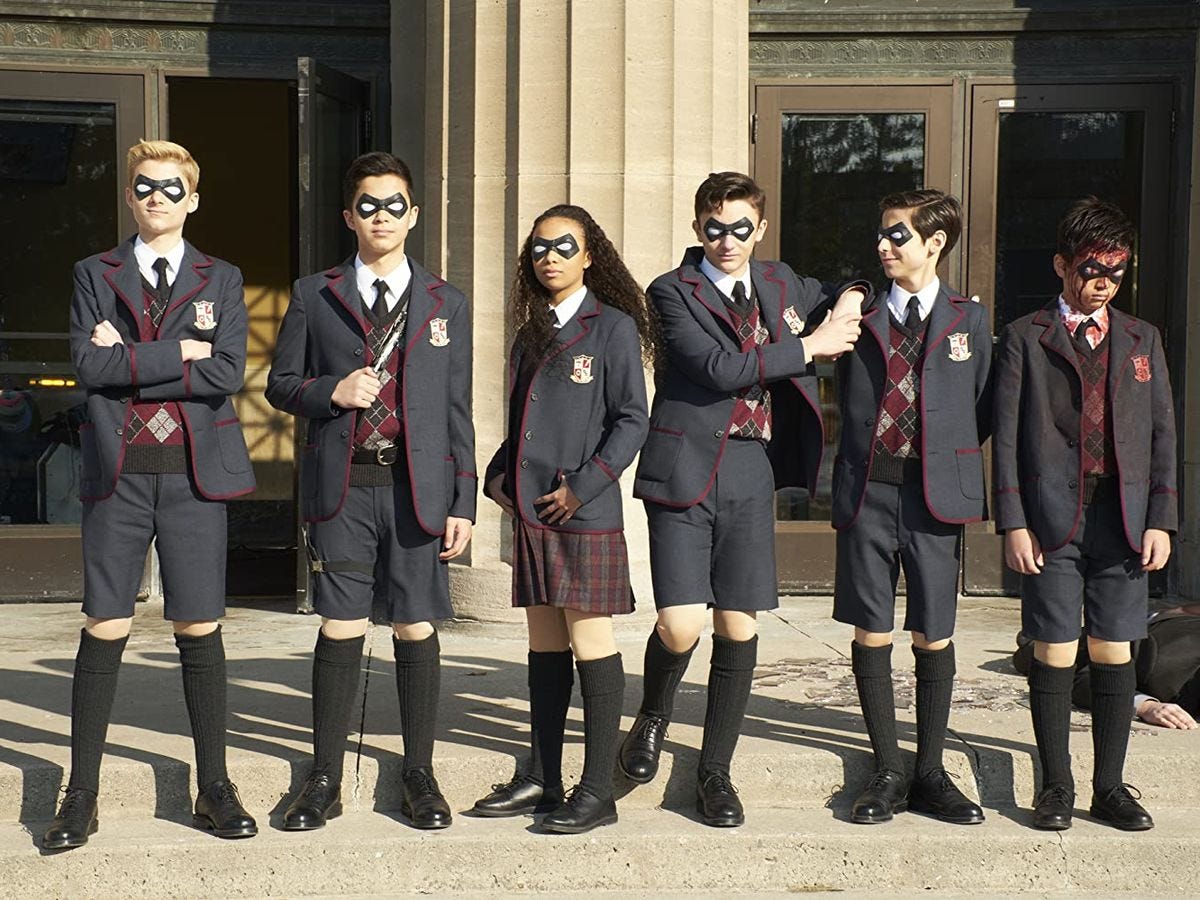
At the stroke of noon on October 1st, 1989, forty-three women suddenly find themselves to be very pregnant, immediately giving birth to these unexpected babies. It was a traumatic moment to say the least, so when an enigmatically monocled and mustachioed man by the name of Sir Reginald Hargreeves swoops in to adopt as many of the children as he can, he is able to get seven of them. Under Sir Reginald’s tutelage at his newly established school known as the Umbrella Academy, a new era of superheroes begins. Years later, this dysfunctional family of sibling superheroes must reunite to solve the mystery of their father's death, and to also stop the threat of an imminent apocalypse.
The seven siblings of the Umbrella Academy are… Number One, known as Spaceboy (Luther Hargreeves), Number Two, known as the Kraken (Diego Hargreeves), Number Three, known as the Rumor (Allison Hargreeves), Number Four, known as the Séance (Klaus Hargreeves). Then there’s Number Five, known only as The Boy (Number Five) because he vanished into thin air before he could get a name, and there’s also Number Six, known as The Horror (Ben Hargreeves), who died tragically while on a mission when they were young. Finally, there’s Number Seven, known as the White Violin (Vanya Hargreeves, later Victor Hargreeves), who has no powers at all, and is the outcast black sheep in a family of outcast black sheep.
Growing up with Sir Reginald as their father—a cold and emotionally distant man who only ever expressed his profound disappointment in them all—has left them all with a litany of personal and mental health issues, not to mention dependancy issues and a long line of grudges and grievances. Honestly, if it wasn’t for Sir Reginald’s death, they may have never spoken to each other again.
But the old man does die, and the siblings find themselves brought back together just in time for what turns into a long, convoluted adventure, three seasons worth, with a fourth and final one this year, that involves time travel, alternate universes, different dimensions, lots of fights, and a whole bunch of bickering and sarcastic comments, but quite a bit of personal growth too, as they come together to try to save the world from multiple apocalypses.
It’s a great show. I love it. Based on the comic book series from writer Gerard Way, lead singer of My Chemical Romance, and artist Gabriel Ba, it’s a really funny and really weird world, with some cool ideas and awesome non-traditional superhero action. I’m really looking forward to this last season.
I also really liked how the show gave Elliot Page space for their character’s transition too, and even did some great stuff as far as acceptance goes, all while not making a big weird issue out of it, so that was cool. Also, Robert Sheehan was my favorite part in the British tv show Misfits, and he’s even better here as Klaus. Plus, in the second season, Ritu Arya joins the cast as the power mimic Lila Pitts, and she’s great.
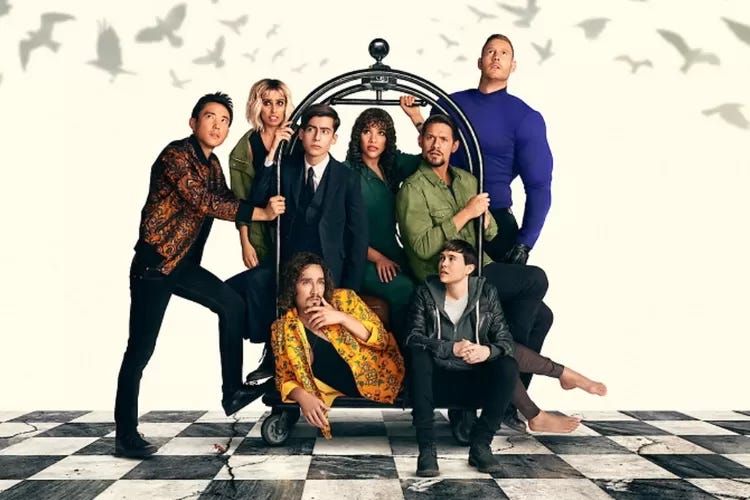
Also, there’s always at least one big dance scene in every season.
Papergirls
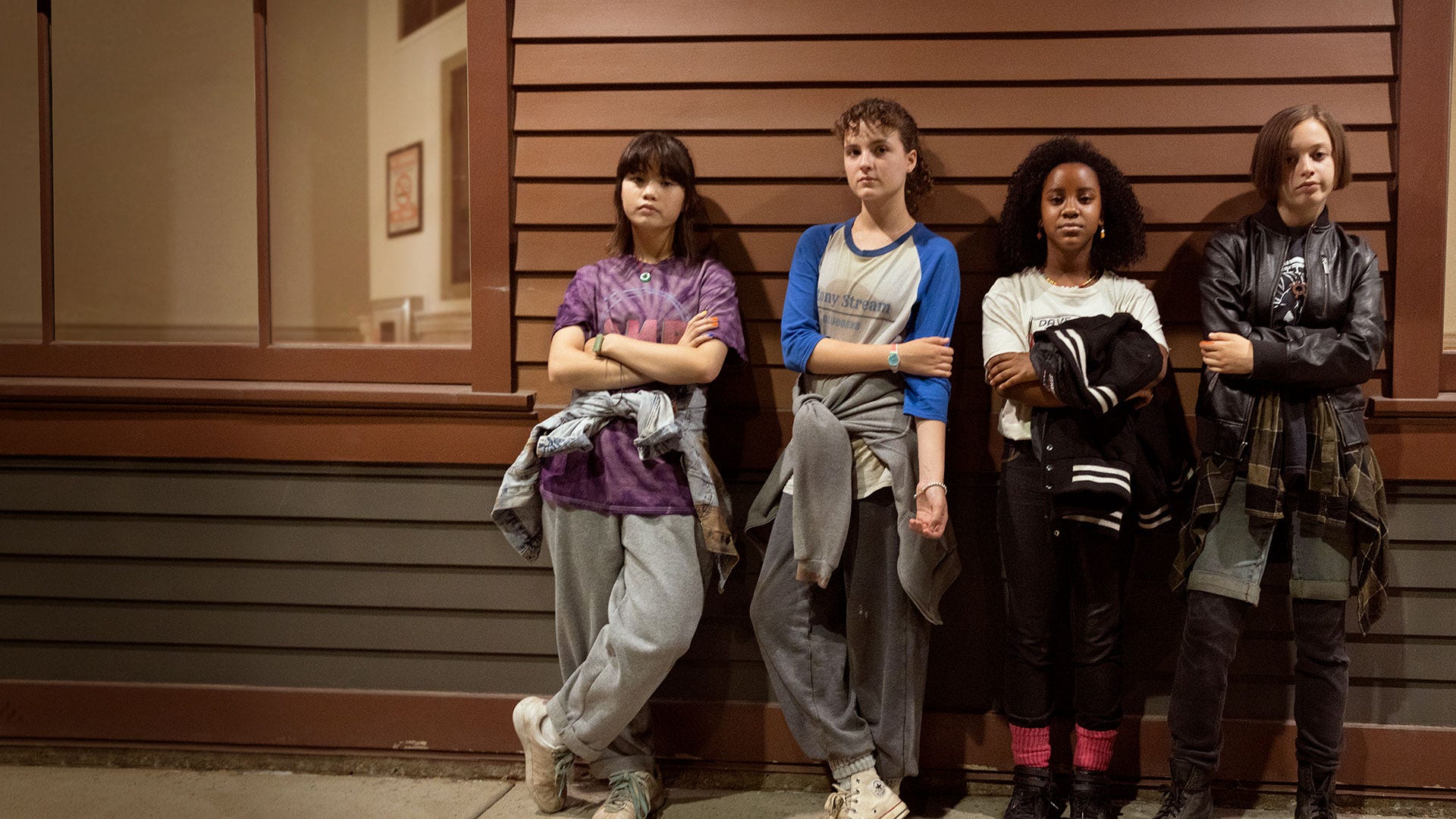
While out delivering newspapers in the early morning hours after Halloween in 1988, four young girls get swept up in a conflict between warring factions of time-travelers, and end up on adventure through time that will save the world.
Based on the fantastic comic by Brian K. Vaughan and Cliff Chiang, the fact that Paper Girls got canceled after one season is really a bummer, because it’s a great story, and while there were a lot of changes made while adapting it for streaming, they were all good choices, and the show featured a fantastic cast more than capable of carrying the weight. It’s really too bad. I wish it could have lasted, because the story had so many good things still to come.
Oh well…
Anyway, the show tells the story of “The Battle of the Ages,” a temporal war between two future factions. On one side are The Old Timers, led by The Grand Father. They are the first generation following the invention of Time Travel, and they very strongly believe in preserving the timeline and strictly enforce their rules regarding time travel by wiping out anyone who tries to change anything. The other side are The Teenagers, or at least, that’s what The Grand Father calls them. They are the Old Timers’ distant descendants, from the 71st century, and they believe in the idea of altering history as needed. At the center of this conflict is the question of whether or not the past can or should be changed by future time travelers, which is really an allegory concerning the question of Imperialism and colonization and its harmful legacy. The girls, Erin, KJ, Tiff, and Mac, are all caught in the middle of this, with a much bigger role than they realize, as they bounce around the time stream, traveling between the 20th and 21st centuries, as well as the distant past and the far-flung future, encountering future, as well as cloned, versions of themselves along the way, forcing them all to come to terms with who they were, and who they will eventually become.
It’s great stuff. Like I said, it’s too bad the show only got one season, but still… it’s worth watching. Plus, if you want to know more, you can always pick up the comic.
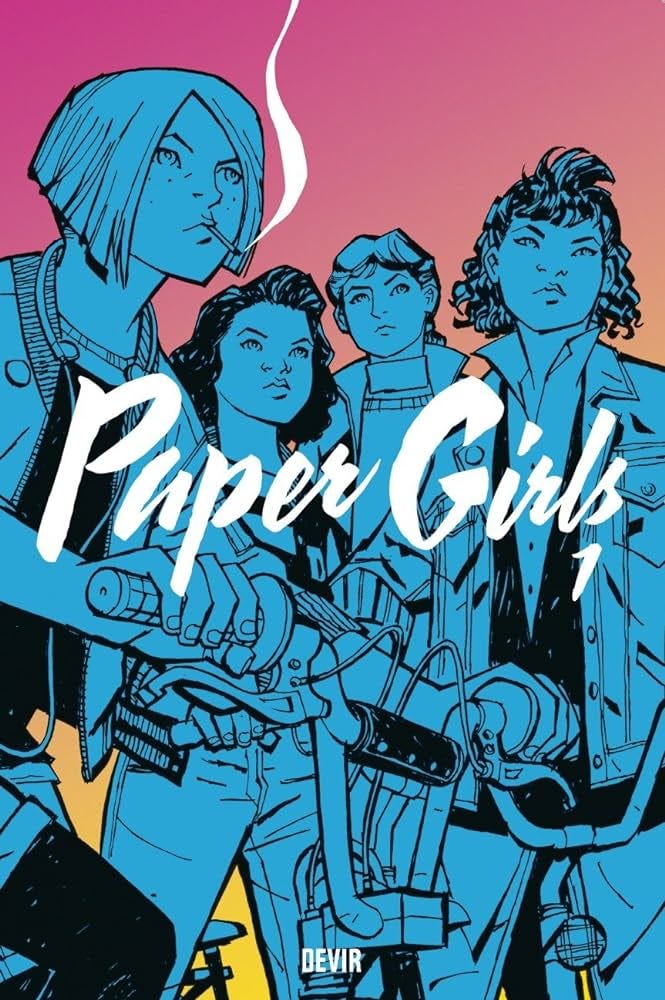
Cliff Chiang does the art, the letters, and the coloring, and it’s all incredible.
12 Monkeys
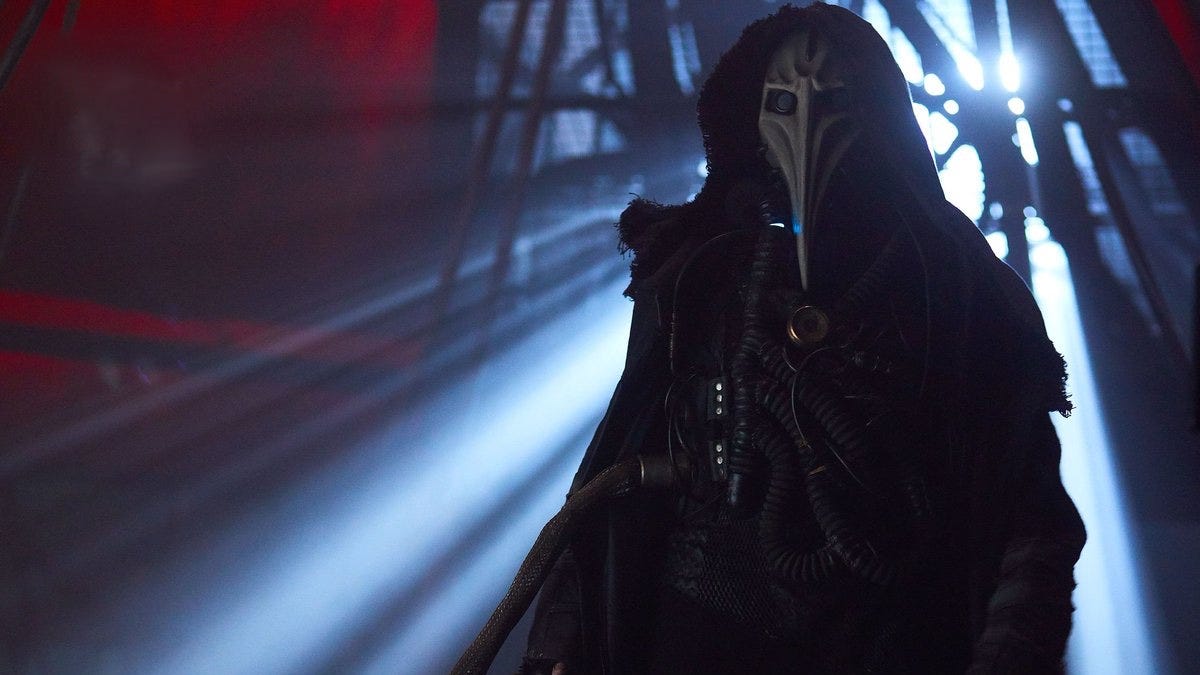
Two strangers, brought together by destiny, tumble through time on a mission to stop a mysterious organization known as the "Army of the 12 Monkeys" from unleashing a virus that will kill 98% of the world’s population.
Very loosely adapting the fantastic 1995 film of the same name, which was written by David and Janet Peoples and directed by Terry Gilliam, a film which, as every old film head worth their salt knows, was inspired by Chris Marker's 1962 short film La Jetée, the tv show 12 Monkeys was not something I expected to enjoy. I felt like it wasn’t necessary, and also, knowing the film, I couldn’t see how you could possibly make a longer version of the film that would be interesting.
Well, I was wrong.
While freely admitting that, much like Continuum, this is show that might be a little too far afield when it comes to the tolerance levels of those who don’t watch a lot of C-tier sci-fi shows, 12 Monkeys is still a blast. Plus, whether you like it or not, you have to acknowledge how clever of an adaptation of the film it is. The big trick is how they diverge the story. In short, they turned it into an alternate universe story, with the most notable example being Emily Hampshire (Schitt’s Creek) as Jennifer Goines, a character that in the original movie is named Jeffery Goines, and he was played by Brad Pitt.
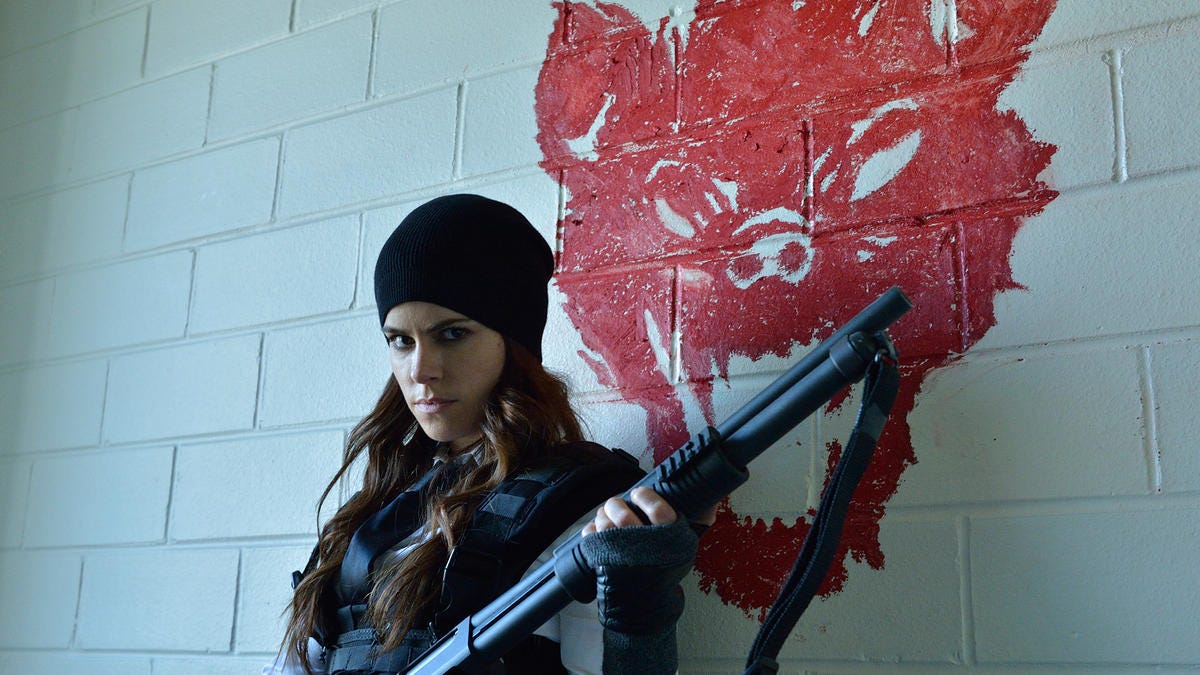
She’s a welcome addition.
Once the show breaks free of the movie, which it does early on, it charts its own course, jumping back and forth in time on a twisting and turning adventure/mystery that spanned a full four seasons and had a nice ending too. The ending only partially sticks the landing, but kudos to the show’s creator for managing to do something that so few of these shows get the chance to.
In short, I’m not going to claim this was the best show ever, but it’s a surprising, and often very clever, good time, and very bingeable watch. Plus, you get the whole story. It’s all a thumb’s up from me.
Sugar
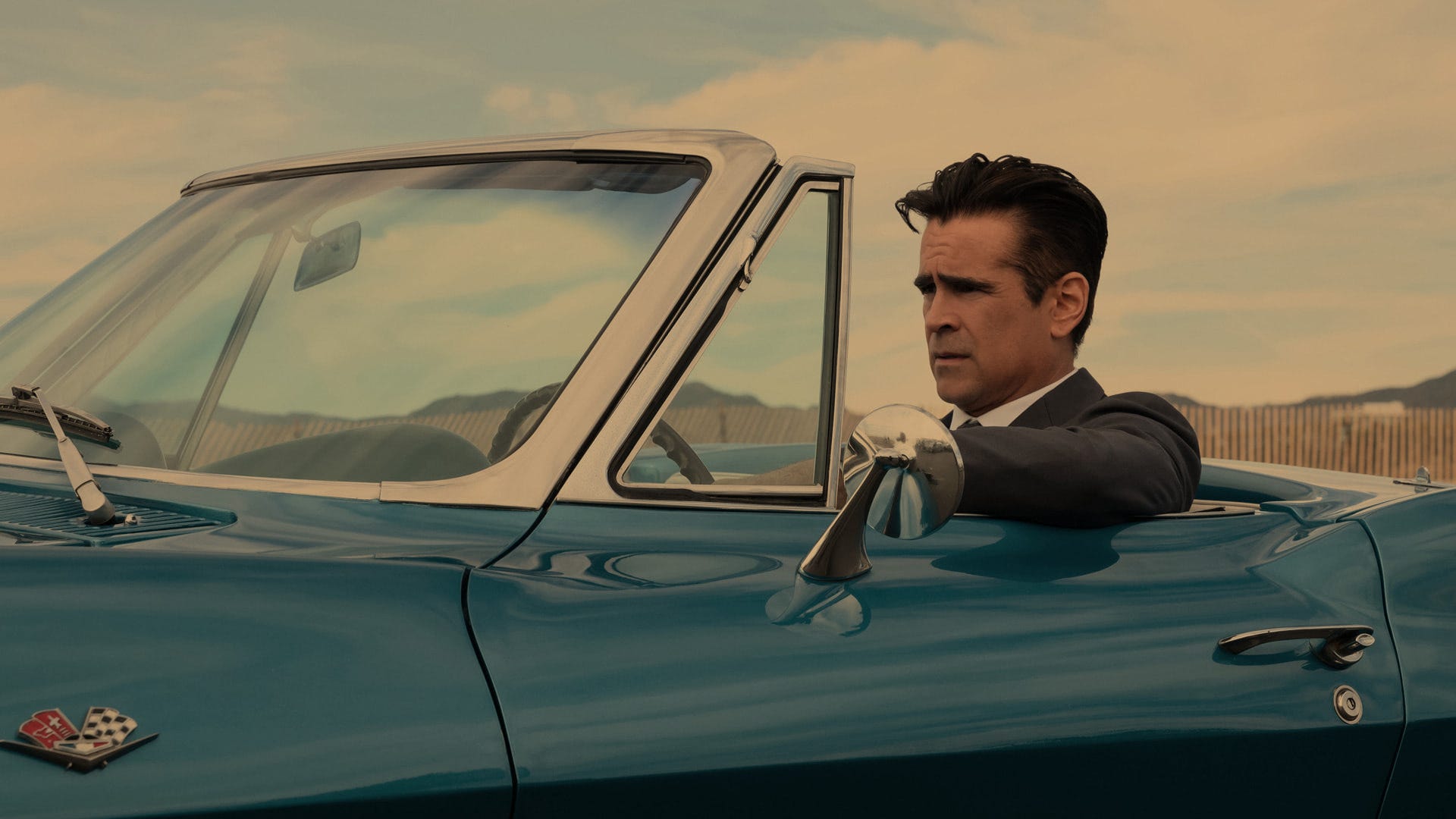
Private detective John Sugar is hired to investigate the disappearance of Olivia Siegel, the wild child party girl of the Siegel family, a name with a long and powerful history in Hollywood. Following the clues through the streets of Los Angeles, Sugar begins to unearth certain dark Siegel family secrets, old and new, all while some dark secrets of his own begin to surface.
This is a newer show. The first season just recently finished, and it basically tells a complete story. It could go on, yes, there is more story to tell here. This could easily become the kind of show where the main story acts as a framework for a new mystery to be hung on ever new season, but if it doesn’t get renewed, at the very least, it still managed to tell its first story all the way through.
A modern spin on the classic L.A. noir detective story, full of palm trees and bright sun, rainy neon-soaked nights, and sad saxophones, a little bit of violence and a lot of regret, there isn’t much that I can talk about here without revealing something, but I will say this… it’s a great-looking and very well-done show that I really liked, and also, I especially liked how it turned out to be very much like an unofficial version of a certain DC comics characater.
It’s definitely worth checking out.
And finally… one last show—one that is still playing right now, on the cusp of wrapping up, or it may have just wrapped up by the time I post this—either way, this is a show that might turn out to be pretty cool…
Dark Matter
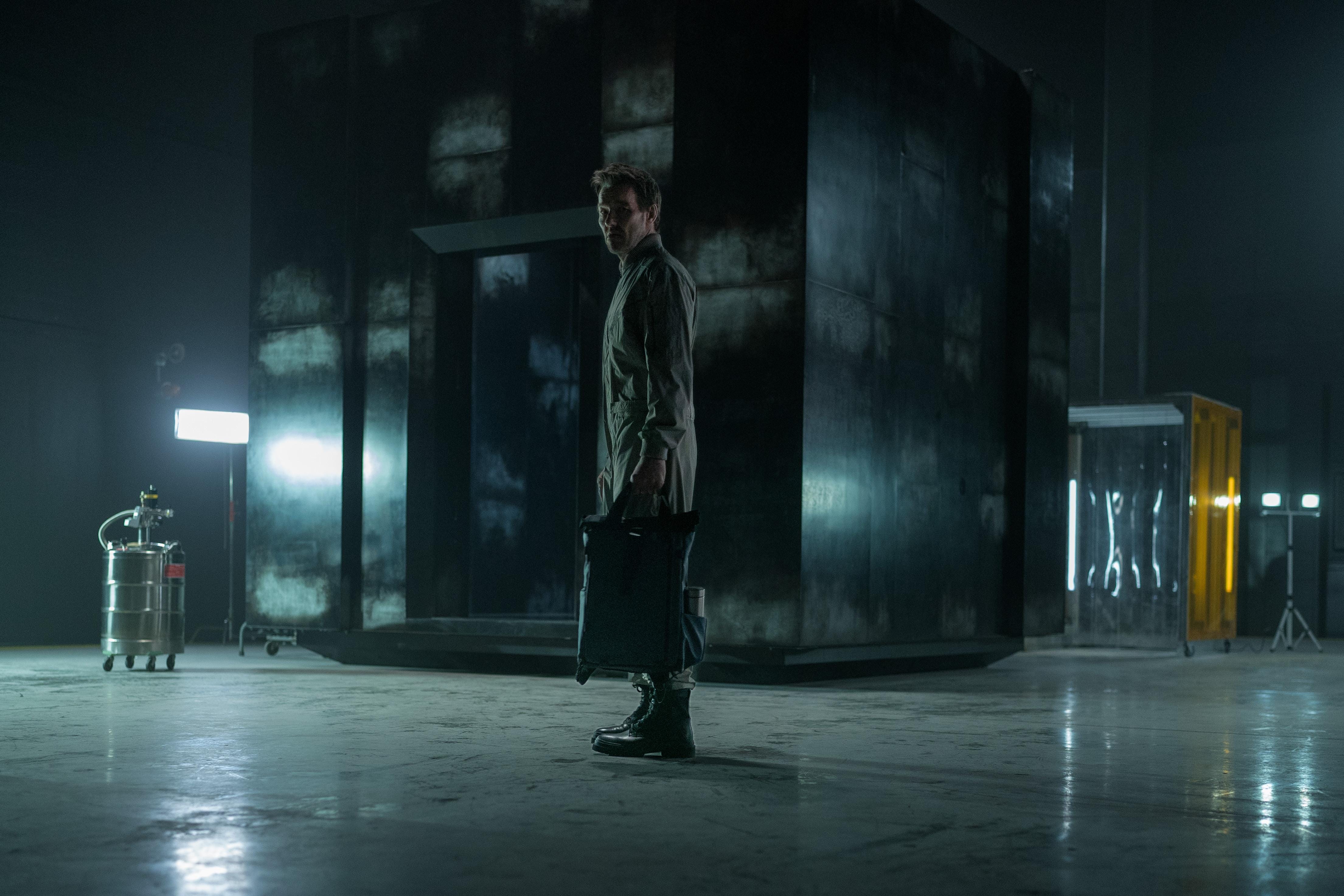
On the way home one night, Jason Dessen is abducted by an alternate version of himself, and throw into an alternate version of his life. Now, he must embark on a harrowing journey through the multiverse, and find his way back to his family, so that he can save them from the most terrifying foe imaginable… himself.
Created by Blake Crouch, adapting his own novel of the same name, Dark Matter is about a man named Jason, happily married with a wife and kid, teaching physics at a local community college, who has his life stolen one day by a version of himself from an alternate universe, a man who actually finished an idea that Jason had years ago… to build a gateway to the multiverse.
The show hinges on the idea of being able to achieve superposition within the multiverse, which requires a drug to dampen the activity of the ceregral cortex, used in conjunction with a specially made box, and a whole bunch of technobabble. I know it sounds complext, but much like how anyone who’s watched any amount of movies or tv shows in the past 30 years should know what an E.M.P. is—
Neo: EMP?
Trinity: Electro-Magnetic Pulse, disables any electrical system within the blast radius, only weapon we have against the machines.
Morpheus: Quiet.
—most audiences should now be familiar with the idea of Schrodinger’s Cat. A thought experiment devised by the Austrian physicist Erwin Schrödinger, it states that if you seal a cat in a box with something that can eventually kill it, you won’t know if the cat is alive or dead until you open the box. So, until you actually open the box and observe the cat, the cat is both dead and alive. This thought experiment was intended to illustrate the paradox of quantum superposition. This relates to the Many-worlds interpretation, which implies that, due to the state of the entire universe being objectively real, all possible outcomes of quantum measurements are then physically realized in some "world" or universe, which basically means every possible outcome of every decision creates a new world of infinite possible outcomes, on and on and on, leading to an unknowable multitude of potential worlds.
In a nutshell… the multiverse.
The show does a good job of making all of this stuff understandable, at least visually, and the result is a fun romp through strange worlds as Jason desperately tries to find his way back to hisd own, which is basically like looking for a needle in a haystack the size of the universe. At this writing, I believe there’s only one or two episodes left, so check it out, it’s been a lot of fun so far.
And there you go. That’s some good TV for you. Sit down, order a pizza.
Join me…
